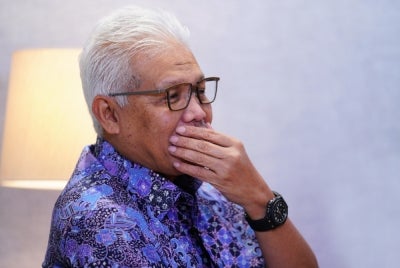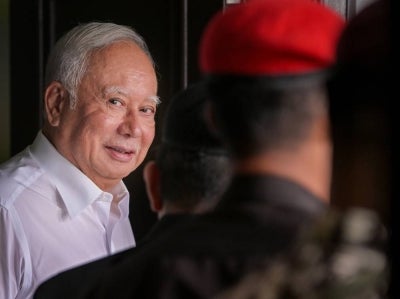Home ownership: Need for fairer system, free from riba

SHAH ALAM - The government needs to diversify home ownership alternatives instead of relying solely on affordable housing financing from financial institutions for the low-income group (B40).
Putra Business School (PBS) Master of Business Administration (MBA) Programme director and Associate Professor Dr Ahmed Razman Abdul Latiff said even though the government introduced the Rent To Own Scheme (RTO) to help the B40 group own affordable homes, this initiative fell short in addressing the home ownership challenges, particularly in major cities.
He said the existing method required the B40 group to rent for three years and then apply for a loan from a financial institution to purchase the house.
However, he said, the introduction of the RTO initiative could not solve the main issue because the cost of financing provided by financial institutions borne by the buyer was too high and burdensome due to the increase in house prices in the local market.
"Therefore, the government needs to provide various alternatives for home ownership, especially through the 'Musyarakah Mutanaqisah' scheme, which is a joint ownership agreement between buyers and institutions such as cooperatives like Syarikat Perumahan Negara Berhad (SPNB), 1Malaysia Housing Programme (PR1MA) or other government agencies or housing development companies.
"Through the Musyarakah Mutanaqisah method, the buyer only needs to pay about five to 10 per cent of the market price of the house in order to become joint owners of the property while the institution has a 90 per cent stake in the asset," he told Sinar Premium.
Commenting further, Razman said after that, the buyer will live in the house and an agreement would be made to allow them to rent the unit based on the residential rental price in the house's location.
"For example, if the house rental rate in the area is RM1,000 a month, then they only pay a monthly rent of RM900 because they own a 10 per cent interest in the asset involved.
"If the buyer is willing to pay RM1,500, that means he pays RM900 for the monthly rent and the remaining RM600 is an additional payment for them to own the house," he said.
He explained that after a year, the buyer and the institution concerned needed to review the rental agreement to avoid manipulation of rental rates and house prices.
"If they want to move after several years of renting, then the house involved must be sold according to the market price and the profit must be divided based on the percentage of ownership of the unit involved.
"Nowadays many people buy houses through loans from financial institutions and then sell them for a high profit.
"If we use the Musyarakah Mutanaqisah method, then speculators cannot earn a living because they can only make a profit according to the percentage of ownership of the house involved," he added.
He said that the method of ownership through the Musyarakah Mutanaqisah scheme was not only fairer, but also did not involve the usury (riba) element practiced in the banking system in Malaysia today.
"If you follow the usury method in the current banking system, it doesn't matter whether the borrower is in Perlis or Kuala Lumpur, the profit rate charged to the borrower is the same.
"However, with the Musyarakah Mutanaqisah system, we will see that if the rental index is low, then the profit rate is also low," he said.
He added that Canada has successfully implemented a house purchase scheme without involving usury achieved through the collaboration of the 'Islamic Co-operative Housing Corporation and Ansar Co-operative Housing Corporation'.
In the meantime, Malaysia has adopted a model similar to western countries like Germany and the Netherlands.
In this approach, the government established a social housing organisation to ensure enough houses were available for rent, particularly for those less financially capable, throughout their lifetime.
Download Sinar Daily application.Click Here!














